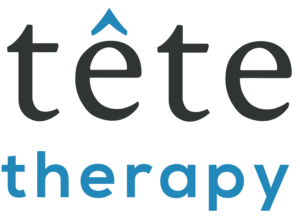Modalities
Art Therapy: Art therapy provides a means of healing through creativity. It is especially beneficial for individuals who find it challenging to express themselves verbally or who have difficulty accessing aspects of their trauma. This therapeutic approach encourages the exploration of trauma and self-expression through various art forms, such as drawing, painting, poetry, or movement. Art therapy can help communicate feelings that are hard to articulate.
Somatic Therapy: Somatic Therapy uses the body to process emotions. Through movement and body awareness, this approach helps release trauma stored in the body, offering a different path to healing that doesn’t rely on talking.
Experiential Therapy: Experiential Therapy, like Art and Somatic Therapy, lets people connect with emotions through activities. By exploring feelings like shame, anger, or sadness in new ways, individuals can process difficult experiences without relying solely on words.
Mindfulness: Mindfulness is about being fully present in the moment, aware and without judgment. It’s a valuable technique for those dealing with anxiety, depression, and stress, offering tools for calm and self-awareness.
Traditional Modalities
Cognitive Behavioral Therapy (CBT): CBT helps people reshape unhelpful thought patterns that impact emotions and behaviors. This modality is great for reducing guilt, shame, and self-critical thinking.
Dialectical Behavioral Therapy (DBT): DBT is helpful for managing intense emotions and increasing distress tolerance. It combines mindfulness, emotional regulation, and interpersonal skills to support individuals who experience big emotional reactions.
Attachment Therapy: Attachment Therapy looks at how early experiences shape our relationships today. By understanding these patterns, people can develop healthier ways of connecting in current relationships.
Grief Therapy: Grief Therapy provides support for those coping with loss, loneliness, and the emotional pain that comes with grief. There’s no single “right” way to grieve, and grief therapy creates a space for each individual’s unique journey.
Transformative Justice: We recognize the impact of societal systems on individuals, especially for BIPOC clients. Transformative Justice acknowledges systemic oppression and creates space for culturally aware and inclusive healing.
A Human-Centered Approach to Therapy
Our approach is collaborative and compassionate. We’re here to explore the roots of interpersonal challenges with you, fostering profound, long-lasting change. At Tête Therapy, we’re committed to building strong, supportive relationships and helping you live a meaningful, fulfilling life.
Common Reasons to Seek Therapy
- Anxiety, Depression, PTSD, Trauma
- OCD, Stress Management, Perfectionism
- Family, Teen, or Couples’ Struggles
- Work-life balance, Burnout, Career Changes
- Behavioral Issues
- LGBTQIA+ and BIPOC-related Challenges
We are here to support you at every step of your journey. If you have any questions or are curious about the options available, please reach out to us. We understand that having multiple services to choose from can feel overwhelming. Email us your inquiries or give us a call, and we’ll help you find the best services for your needs. Let’s begin your healing journey together

